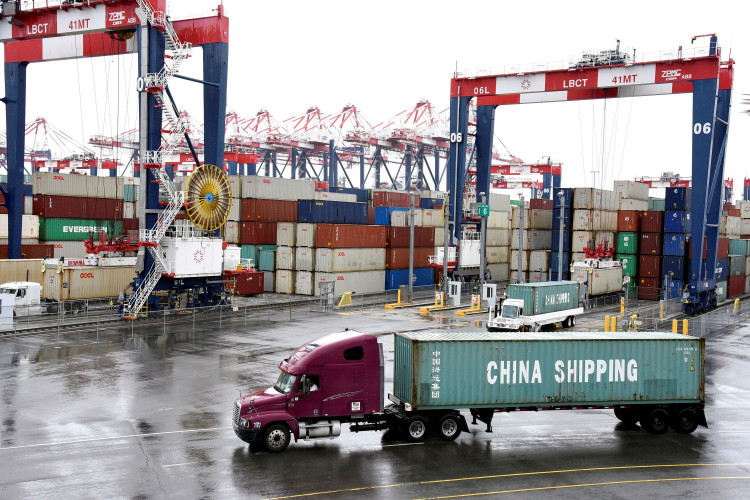After US President Donald Trump agreed to lower the tariff rates on Chinese imports this month, an analyst claimed that exchange for massive agricultural purchases between the world's top economies would lead to higher-valued stocks with banks being the main beneficiary.
According to the chief financial analyst of Seeking Alpha Michael Gayed, investors would be rallying up by the end of the year as lesser uncertainty clouds the stock market after the completion of phase one of the China-US trade deal.
He claimed that the agreement on rolling back tariff rates on Chinese imports to the US would take effect this Sunday. Thus, Gayed claimed that the exchange of Chinese purchases of US agricultural products and other concessions are expected to rise.
He also claimed that agricultural goods would yield greater profits for US companies partaking in the industry and that energy and other goods would also experience the same. He, however, warned that investors should look into the agricultural purchases closely as the US could get back on its deal if the conditions of the trade deal would not be met.
Gayed also claimed that the stock market responded well to phase one of the trade deal. He claimed that value sectors such as holdings in the iShares S&P 500 value exchange-traded fund (ETF) and the SPDR S&P Bank ETF rose by three percent in just a day. He also added that this proved economic activity would likely increase and curve banks' net interest margin earnings.
In other news, it was reported that China's Premier Li Kequiang announced the cutting of banks' reserve requirement ratios (RRRs) to lower the borrowing costs for small businesses in China. The said policy was China's strategy in easing up its monetary policy by next year thereby promoting more purchases for Chinese businesses to aid the country hold up their end on the trade deal.
Moreover, it was also announced that the Chinese government would continue taking on measures such as imposing these targeted RRR cuts, lending, and rediscounts to lower real interest rates. It was also perceived that the move would also cut down financing costs for businesses. It was explained that re-lending and rediscount are monetary tools that the Chinese central bank utilizes to inject funds into Chinese banks.
According to an influential economist and former People's Bank of China adviser Yu Yongding, China has greater monetary stimulus and that government spending may shore up the flagging economy. However, some economists disagree with this sentiment and claimed that the increases in government spending may come with associated risks.





